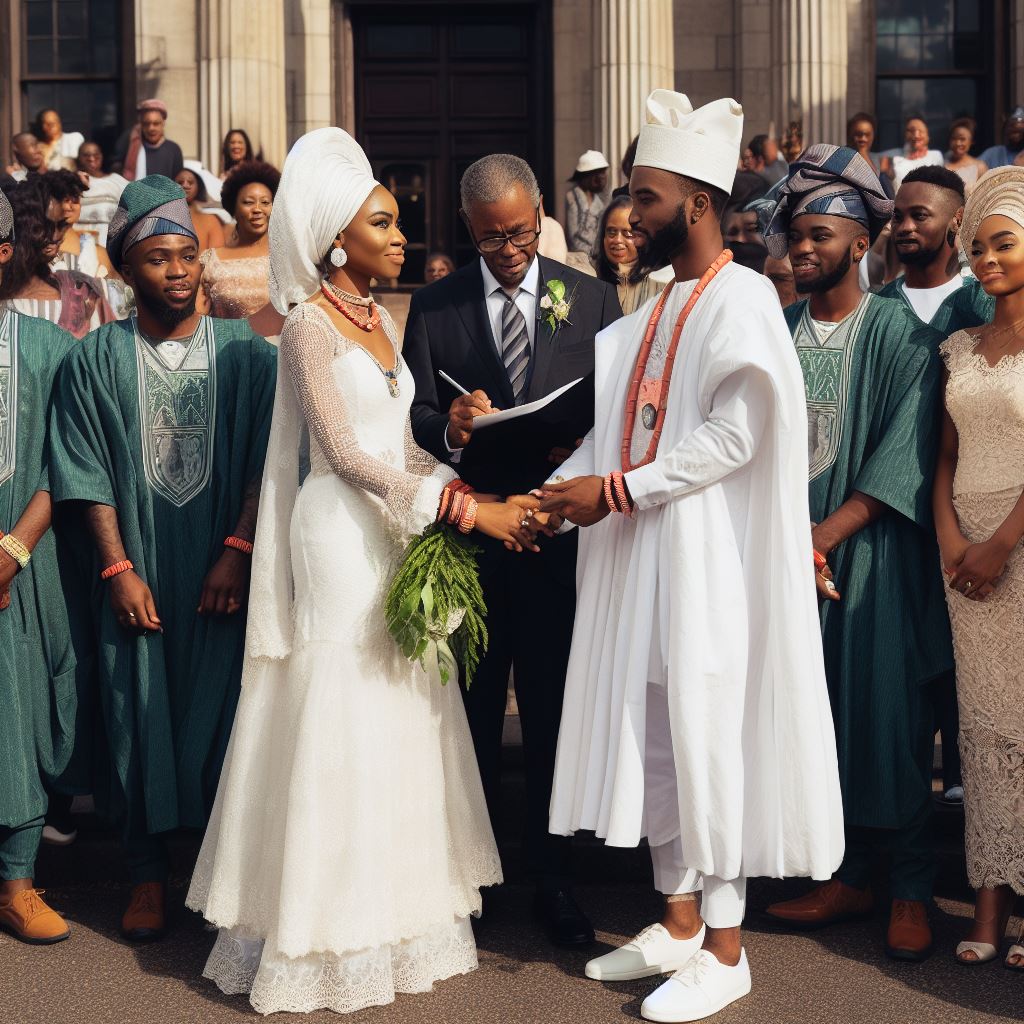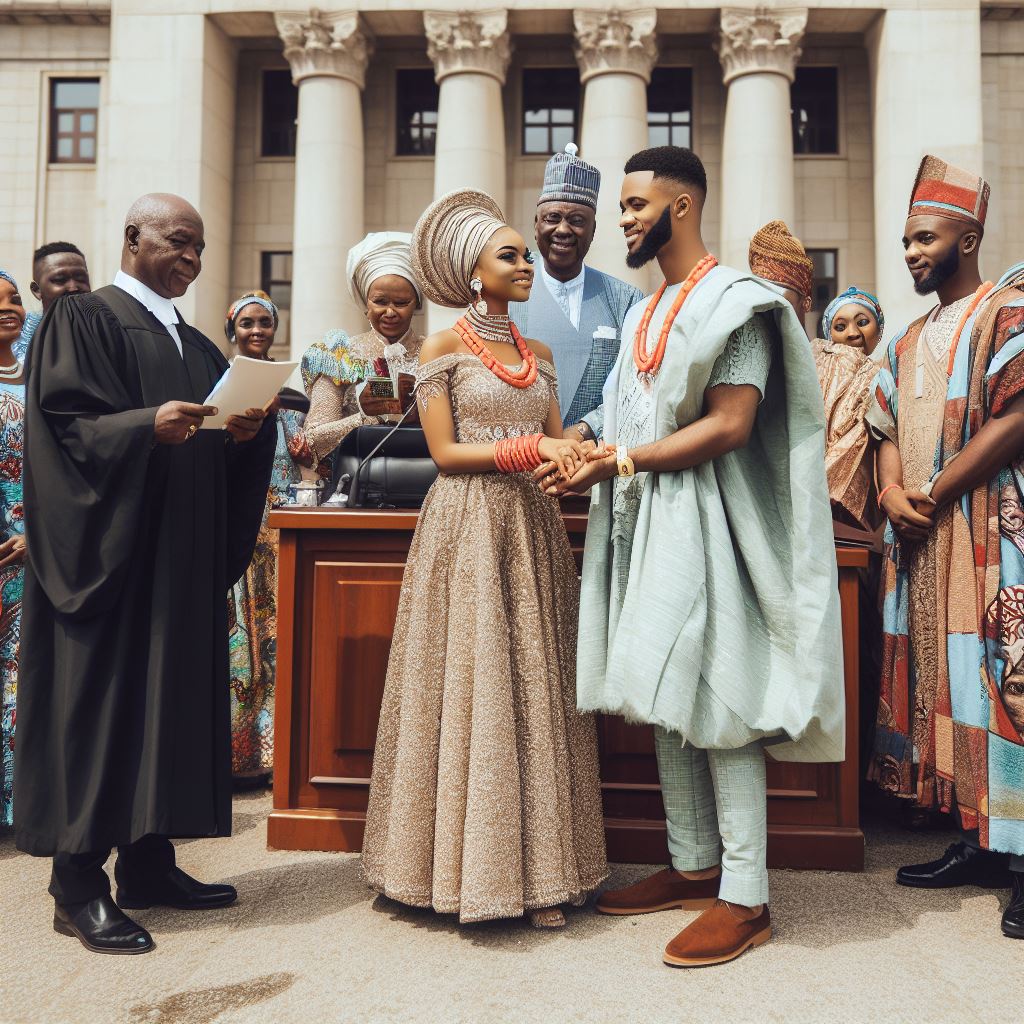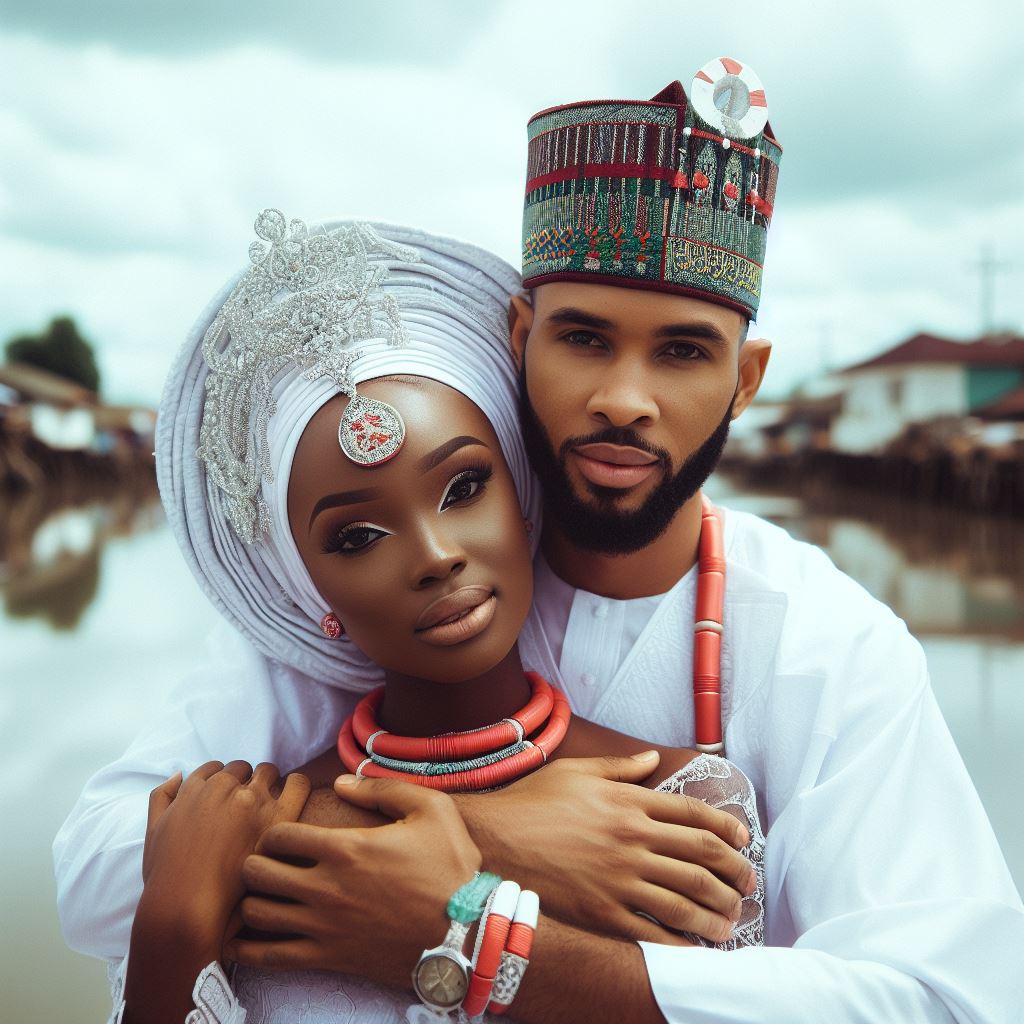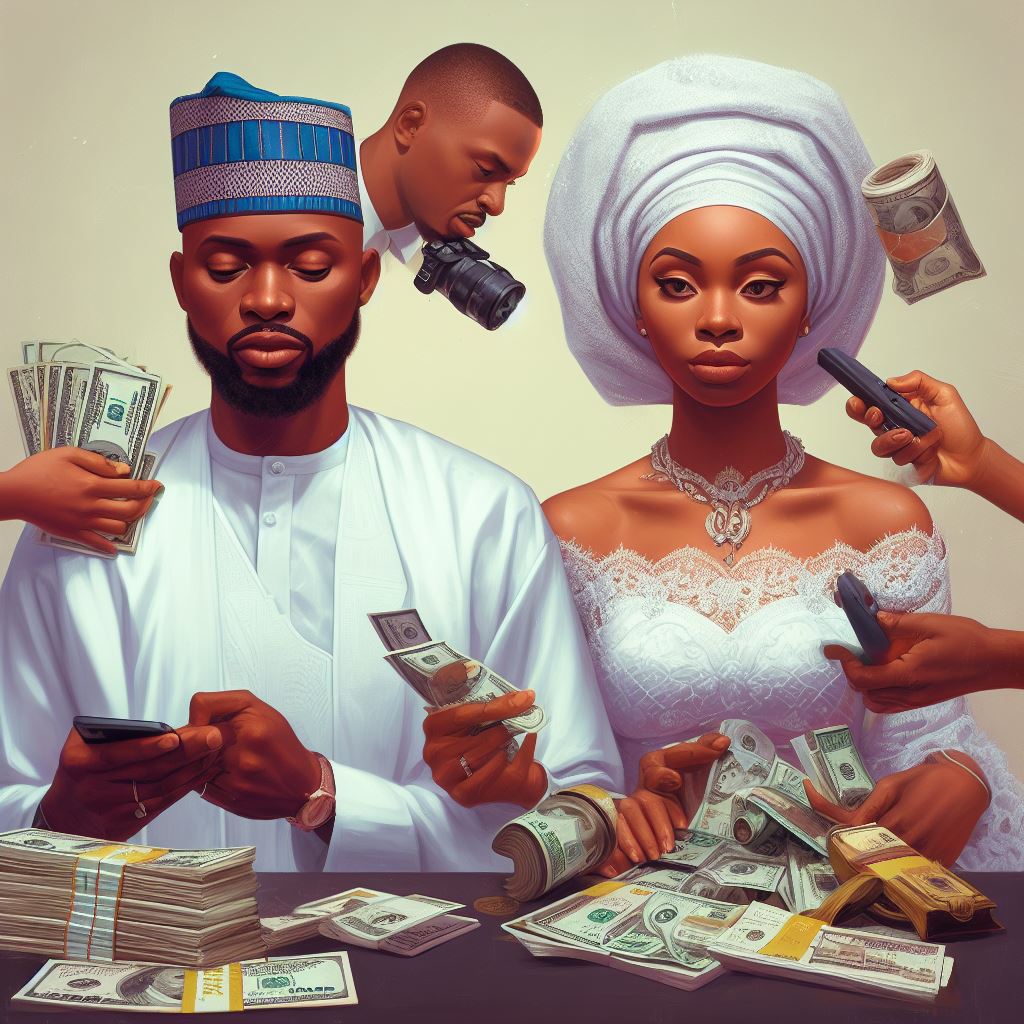Introduction
Brief overview of Nigerian literature
Nigerian literature is a rich tapestry that reflects the diverse cultural landscapes of the nation.
With notable authors like Chinua Achebe, Chimamanda Ngozi Adichie, and Wole Soyinka, it encompasses a wide range of themes, including the institution of marriage.
Definition of marriage in Nigerian culture
In Nigerian culture, marriage is more than a union between two individuals; it’s a binding of families, a celebration of tradition, and a cornerstone of societal structure.
It holds profound significance, deeply rooted in the country’s various ethnic groups and regions.
Nigerian literature beautifully captures the essence of marriage, portraying its complexities, joys, and challenges.
Through the lens of Nigerian authors, we explore the multifaceted nature of marriage in a country where tradition and modernity intersect.
Marriage as a central theme in Nigerian literature
Importance of marriage in Nigerian society
- Marriage holds significant cultural and social value in Nigerian society.
- It is considered a rite of passage and a means of continuation of family lineage.
- Marriage ensures stable social structures and fosters community cohesion.
- It provides economic and emotional support for individuals within the Nigerian society.
- The institution of marriage is deeply rooted in customs, traditions, and religious beliefs.
- Nigerian literature often explores the expectations and obligations associated with marriage.
Representation of marriage in various literary works
- Chinua Achebe’s “Things Fall Apart” portrays marriage as a tool for male dominance and lineage preservation.
- The novel depicts the conflicts and dynamics within polygamous marriages in Igbo society.
- Buchi Emecheta’s “The Joys of Motherhood” explores the challenges faced by women in traditional Nigerian marriages.
- The protagonist, Nnu Ego, struggles to find fulfillment in her role as a wife and mother.
- Wole Soyinka’s play “Death and the King’s Horseman” showcases the complexities of arranged marriages in Yoruba culture.
- The central characters, Elesin and Iyaloja, grapple with their respective marital duties and cultural expectations.
- Chimamanda Ngozi Adichie’s “Americanah” presents a modern perspective on marriage.
- The novel explores the challenges faced by Nigerian immigrants in maintaining their cultural values in Westernized societies.
- Marriage is portrayed as a means of self-discovery, identity formation, and negotiation of cultural differences.
- In these literary works, marriage serves as a reflection of societal norms, power dynamics, and individual aspirations.
- Authors use marriage as a platform to raise awareness about gender roles, cultural traditions, and societal expectations.
- Nigerian literature often depicts the complexities, struggles, and joys experienced within the institution of marriage.
In fact, Nigerian literature beautifully captures the essence of marriage as a central theme.
It highlights the importance of marriage in Nigerian society, shedding light on its cultural, social, and emotional significance.
Through various literary works, authors explore the representation of marriage, delving into the complexities and dynamics of marital relationships.
These narratives offer insights into the roles, expectations, and challenges faced by individuals within the context of marriage.
Nigerian literature effectively portrays marriage as a microcosm of society, reflecting its values, traditions, and power structures.
Overall, the portrayal of marriage in Nigerian literature enriches our understanding of this essential aspect of human life.
Read: Celebrating Love: Famous Nigerian Couples’ Quotes
Portrayal of the challenges and complexities of marriage
Cultural and societal pressures on married couples
- Nigerian literature explores the influence of cultural and societal norms on married couples.
- These pressures shape the behavior, expectations, and roles within the institution of marriage.
- Marriages in Nigeria are often subject to the expectations of extended family members and society at large.
- The pressure to conform to cultural practices and traditions can place a strain on marital relationships.
- Nigerian literature portrays the conflicts that arise when couples must navigate between tradition and personal desires.
Gender roles and power dynamics within marriages
- Nigerian literature sheds light on the power dynamics and gender roles prevalent within marital relationships.
- Traditional gender roles often dictate the expectations and responsibilities assigned to men and women.
- These roles can create inequality and limit the agency of either spouse.
- Literature examines the challenges faced by couples when these roles clash with personal aspirations.
- Authors portray characters who resist societal expectations, challenging traditional gender roles within marriages.
Infidelity and marital conflicts
- Nigerian literature vividly represents the issues of infidelity and conflicts within marriages.
- Infidelity, although often condemned, is a recurring theme that exposes the vulnerabilities of marital relationships.
- Authors explore the underlying causes and consequences of marital infidelity.
- Nigerian literature delves into the emotional repercussions and the efforts to rebuild trust after infidelity.
- These portrayals reflect the complexities of human nature and the challenges faced when trust is shattered.
Domestic violence and abuse
- Nigerian literature bravely tackles the sensitive topic of domestic violence and abuse within marriages.
- It sheds light on the physical, emotional, and psychological abuse endured by some spouses.
- These narratives aim to raise awareness and encourage discussions surrounding this prevalent issue.
- Authors depict the struggles faced by victims of domestic violence and the journey towards liberation.
- Nigerian literature contributes to the ongoing conversation on combating domestic violence and promoting healthy marriages.
In short, Nigerian literature delves into the challenges and complexities inherent in marriage.
It highlights the cultural and societal pressures, gender roles, infidelity, and domestic violence.
These portrayals provide a nuanced understanding of the institution of marriage, shedding light on the intricacies of human relationships.
Through literature, readers are encouraged to examine and evaluate the existing norms and dynamics within marriages, fostering greater empathy and understanding within society.
Read: Hausa Wisdom: Traditions and Quotes on Marriage
Exploration of traditional marriage practices and customs
Traditional marriage ceremonies and rituals
Traditional Nigerian wedding ceremonies are filled with rich cultural practices and rituals that highlight the importance of marriage in the society.
These ceremonies vary depending on the ethnic group, but they all demonstrate the essence of marriage.
Bridal price and dowry system
In Nigerian culture, the bridal price and dowry system play a significant role in marriage.
It is a way of showing respect, honor, and appreciation to the bride’s family.
The groom’s family pays a fee or offers gifts to the bride’s family as a symbol of unity and acceptance.
Polygamy and its implications on marriages
Nigerian literature delves into traditional marriage customs, portraying marriage as a reflection of deep-rooted culture and values.
These depictions highlight the cultural significance of marriage, showcasing it as a celebration of heritage and community.
The bridal price and dowry system is a prominent feature, emphasizing mutual respect, appreciation, and unity in marriage.
It underscores that marriage unites not just two individuals but two families, symbolizing their merger.
Polygamy, prevalent in Nigerian culture, is explored in literature, revealing the complex dynamics it entails.
Readers gain insight into issues of jealousy, competition, and emotional balance in polygamous marriages.
Nigerian literature underscores the multifaceted nature of marriage, serving as a window into the rich Nigerian culture.
It reinforces the importance of preserving customs and traditions and appreciating marriage as more than a union of hearts.
Basically, Nigerian literature provides a deep understanding of marriage’s cultural and traditional aspects.
It offers insights into its complexities and highlights its significance.
Read: Contemporary Nigerian Authors on Love & Commitment
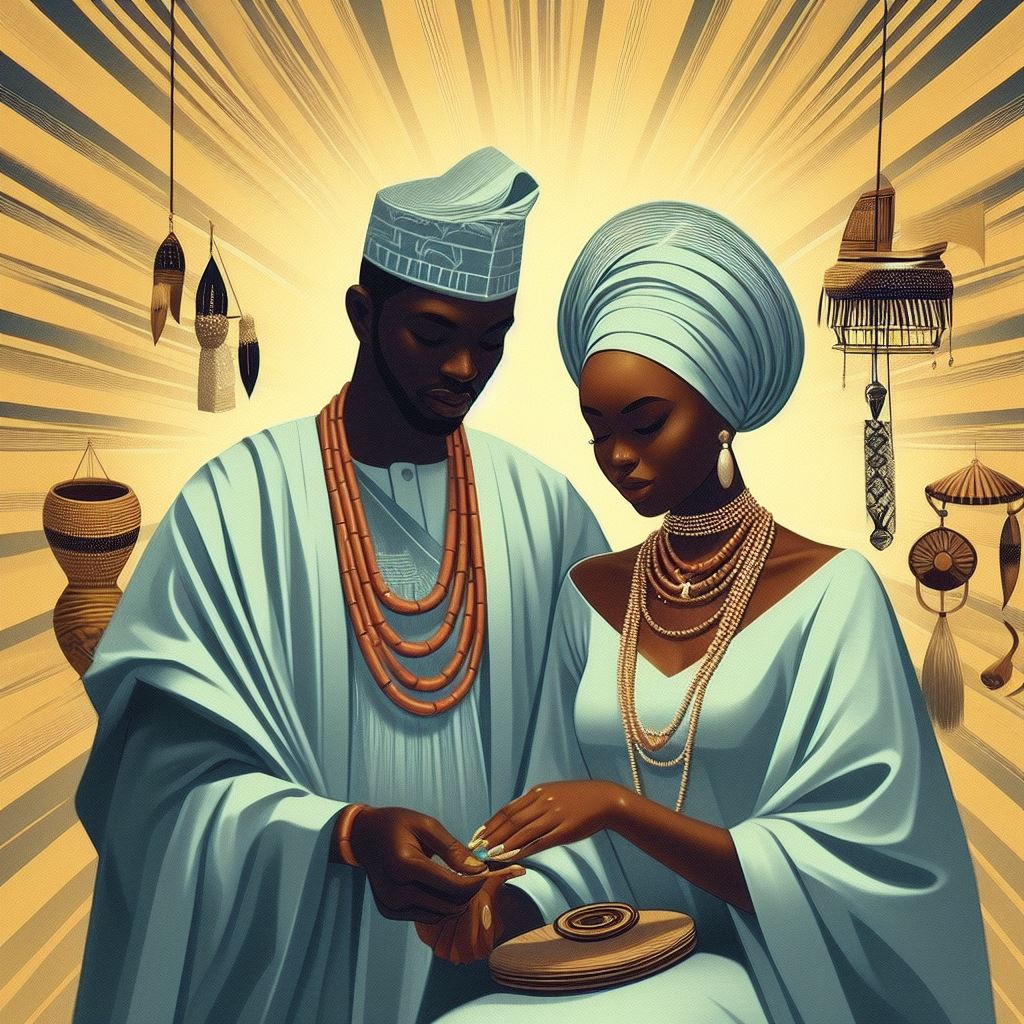
Depiction of love and romance in Nigerian marriages
Romantic relationships within arranged marriages
Nigerian literature often portrays love and romance within the context of arranged marriages.
While some may view arranged marriages as lacking passion, Nigerian authors shed light on the possibility of true love and connection in these unions.
Through vivid storytelling and compelling characters, writers illustrate how couples in arranged marriages can build deep emotional connections over time.
These connections are not solely based on physical attraction, but on shared values, respect, and understanding.
By exploring the complexities of arranged marriages, Nigerian literature challenges the misconception that love can only exist in relationships born out of romantic ideals.
Love as a transformative force in marriages
Nigerian literature emphasizes the transformative power of love within marriages, portraying it as a catalyst for personal growth and change.
Authors depict how love can inspire individuals to overcome obstacles and face challenges together, ultimately strengthening their bond.
Love is portrayed as a force that helps couples navigate the complexities of marriage, supporting each other through difficult times and celebrating achievements.
Through their narratives, Nigerian writers highlight the inherent transformative nature of love, shedding light on its potential to shape not only marriages but also individuals themselves.
The role of romance novels in shaping perceptions of love and marriage
Romance novels play a significant role in shaping perceptions of love and marriage in Nigerian literature.
These novels often provide readers with a glimpse into idealized love stories, emphasizing passion, desire, and emotional connection.
By depicting love as a powerful force that conquers all obstacles, romance novels contribute to the portrayal of love within Nigerian marriages.
However, it is important to acknowledge that these depictions may not always reflect the complexities and realities of real-life marriages.
Nigerian writers continue to challenge traditional narratives by exploring the diverse experiences and dynamics of love and romance within their stories.
While romance novels can shape perceptions, Nigerian literature as a whole aims to create a more comprehensive understanding of love and marriage in Nigerian society.
Nigerian literature beautifully captures the essence of marriage by depicting love and romance within various contexts.
From arranged marriages to transformative love, Nigerian authors challenge societal expectations and explore the complex dynamics of marital relationships.
Through their stories, readers gain a deeper appreciation for the diverse experiences of love and marriage in Nigerian society, breaking free from conventional stereotypes and embracing the richness of these relationships.
Read: Special Anniversary Greetings for Friends: Naija Edition!
Examination of the evolving portrayal of marriage in contemporary Nigerian literature
Influence of globalization, modernity, and Western ideals on marriages
The depiction of marriage in Nigerian literature has been greatly influenced by globalization, modernization, and the introduction of Western ideals.
Nigerian authors are increasingly exploring the impact of these forces on traditional marital practices.
Marriages are now portrayed as being influenced by factors such as social media, materialism, and changing gender roles.
The influence of Western notions of romantic love and individualism has also made its way into literary depictions of marriage in Nigeria.
This shift highlights the interplay between tradition and modernity, and the complex dynamics within Nigerian marriages.
Shift towards more nuanced and realistic depictions of marriage
Nigerian literature has witnessed a significant shift towards portraying marriages in a more nuanced and realistic manner.
Gone are the days when novels painted an idealized picture of marriage, focusing solely on love and happiness.
Authors now explore the challenges and complexities faced by married couples, including infidelity, domestic violence, and societal pressures.
These realistic portrayals aim to foster a deeper understanding of the institution of marriage and its impact on individuals.
By delving into the dark and uncomfortable aspects of marriage, Nigerian literature reflects the realities faced by many couples.
Exploration of non-traditional and same-sex marriages
Contemporary Nigerian literature has also ventured into the exploration of non-traditional and same-sex marriages.
Authors are challenging societal norms and opening up conversations about alternative forms of unions.
These portrayals aim to promote inclusivity and give voice to marginalized communities.
By depicting non-traditional marriages, Nigerian literature acknowledges diversity and advocates for equal rights and acceptance.
This exploration of non-traditional marriages adds depth and richness to the literary landscape, reflecting the evolving nature of Nigerian society.
Therefore, contemporary Nigerian literature has evolved in its portrayal of marriage.
Influenced by globalization, modernity, and Western ideals, marriages are depicted with more complexity and realism.
Authors explore the challenges faced by married couples and delve into previously untouched topics such as non-traditional and same-sex marriages.
These literary works aim to provide a broader understanding of marriage and reflect the changing dynamics within Nigerian society.
Through their writings, Nigerian authors contribute to the ongoing conversations about the essence and significance of marriage in the country.
Delve into the Subject: Role of the Registrar in Nigerian Statutory Marriages: An Overview
Gain More Insights: God’s Blueprint: What Genesis Says About Marriage
Conclusion
Recap of the significance of marriage in Nigerian literature
Insights gained from the literary portrayal of marriages in Nigeria
Importance of understanding the essence of marriage in Nigerian culture through literature
All in all, Nigerian literature vividly illustrates the importance of marriage within Nigerian society.
Through various works of literature, we see how marriage is seen as a fundamental institution.
It serves as a reflection of societal values, cultural norms, and individual identity.
From novels like “Things Fall Apart” to plays like “Wedlock of the Gods,” marriage is a central theme.
These literary portrayals offer insights into the complexities of marital relationships.
They explore themes like love, commitment, loyalty, gender roles, and societal expectations.
Moreover, they shed light on the challenges individuals face within marriages and the broader community.
By delving into these literary works, readers gain a deeper understanding of the essence of marriage.
They learn about the customs, traditions, and cultural practices associated with the institution.
They also gain insights into the roles of men and women, the importance of family, and societal pressures.
By understanding the essence of marriage in Nigerian culture, readers can appreciate the complexity and beauty of the institution.
Nigerian literature provides a powerful lens through which we can examine and understand marriage.

